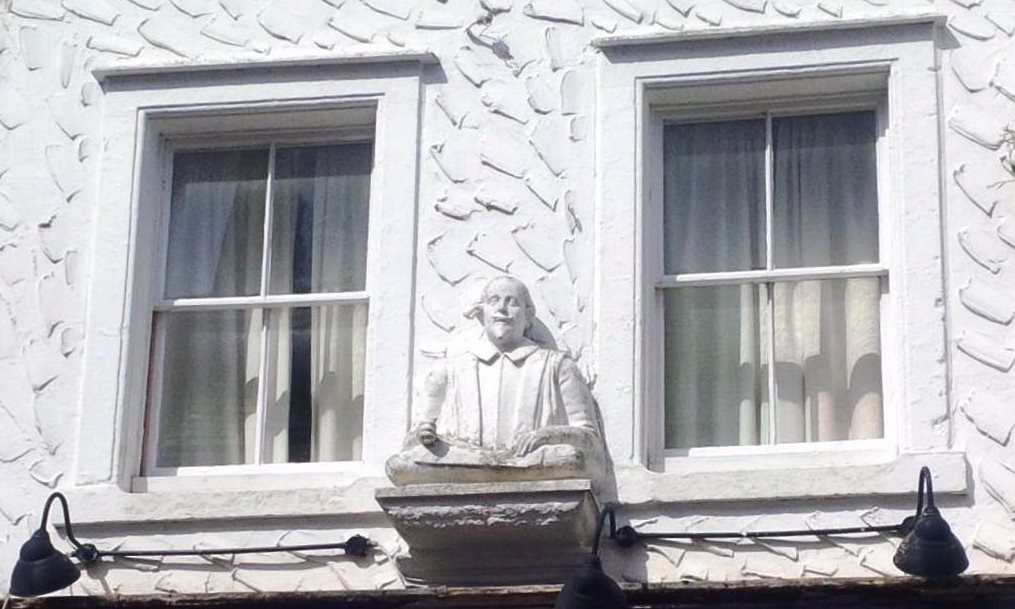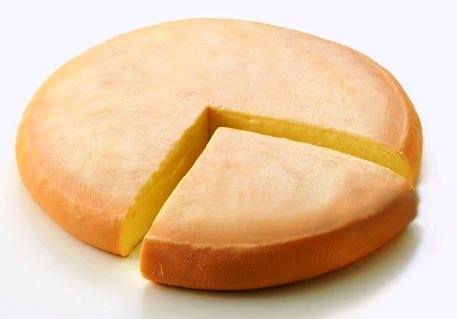“You Banbury cheese!” (The Merry Wives of Windsor, Act 1, scene 1)
This is especially effective when quoted while standing in front of 46 Parsons Street, which back in the day – way back – was the Shakespeare Inn. See, there he is still about Shelia’s Sweets, ready to greet all visitors.)

Banbury is, as you may know, associated with Banbury cake but one can’t live by cake alone (believe me, I’ve tried and it just cannot be done long-term). Enter the Bard and behold – Banbury Cheese!
The Fabulous Foodie blog discussed it during Shakespeare400 when they spent a good part of 2016 commemorating 400 years since the Bard’s death. They said:
* * * * * * * * * * * * * * * * * * * * * * * * * * * * * *
“Banbury cheeses, for which the town was noted until the 18th century, were first mentioned in 1430” (Cal. Close, 1429–36, 74). We don’t have a lot of detail about it – despite it being around for 400 years or so. It was reportedly a cow’s milk cheese, yellow in colour and quite strongly flavoured, made in thin (about 1 inch) rounds.

It’s at the top of the “The Merry Wives of Windsor’ that” Bardolf addresses Slender as “You Banbury Cheese!” and this would have been commonly understood by the playgoers as an insult implying there wasn’t much to him (Banbury cheese being only about an inch thick.) That’s not to say Banbury cheese wasn’t popular – it was. In fact, it was better known than Banbury cakes at the time. It was just thin.
It was made in various places around the area but mostly in Grimsbury and Nethercote – which was at that time the Northamptonshire end of things.*
* Boundaries tended to move around a lot and originally Banbury straddled two counties.
* * * * * * * * * * * * * * * * * * * * * * * * * * * * * *
Cheese was a real THING in Banbury back in the day – there was a cheese market (yes, in the same place near the old cross that the Puritans took such a dislike to) and a yearly CHEESE FAIR just after old Michaelmas. The version of Banbury cheese available at that fair might have been a special version made later in the year called (not very excitingly) “latter-made” cheese.
Given that the cheese was so well thought of that it was given as gifts to the great and the good of the day and that is talked about contemporaneously as the third best cheese in the country – one wonders why it was considered to be an insult or dismissive to be called a Banbury cheese PURELY on the basis of thinness but there you are.
